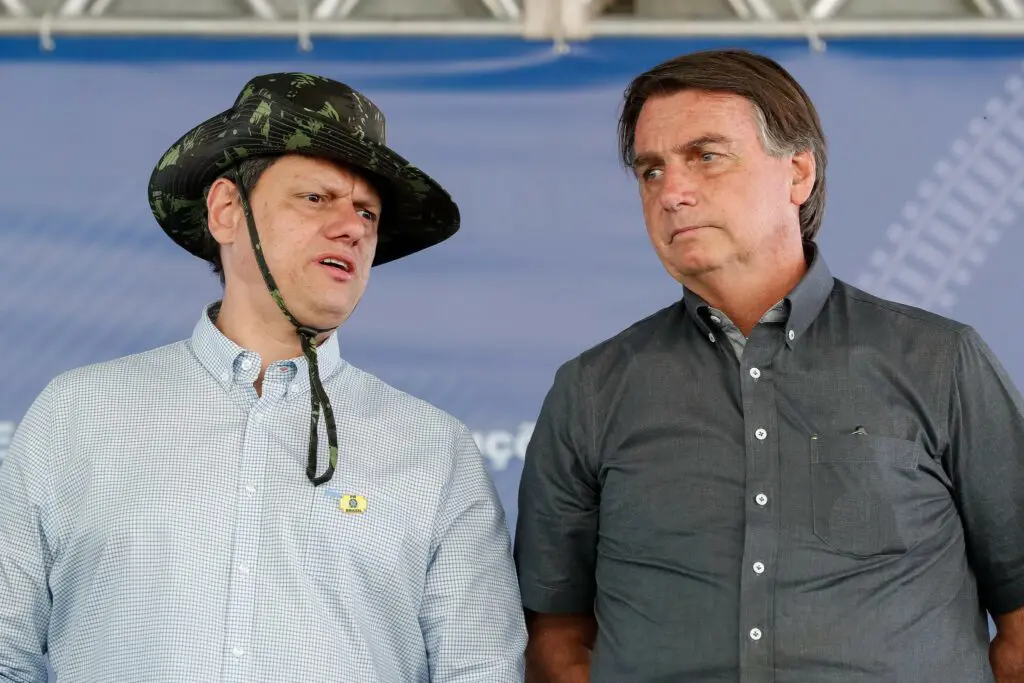PROFILE
To convince the electorate of the richest state in the country – and led by the PSDB for 28 years –, he intends to present himself as a pragmatic man, a good manager, and a builder of works.
In the last three and a half years, Tarcísio de Freitas has gone from being an unknown technician at the National Department of Transport Infrastructure (DNIT) to one of the most popular ministers in the Jair Bolsonaro government. Reserve soldier, graduated from IME and with a master's degree in Transport Engineering from the same school, the engineer arrived at the Ministry of Infrastructure as a technical name and quickly learned to do politics.
In the portfolio, he opted for the continuity of projects and works started in previous governments because he knew that large infrastructure works usually take longer than a mandate to be ready. The strategy gave the minister a reputation for completing unfinished projects. And he knew how to work this narrative well.
He insisted on registering each opening on social media “for transparency”, even if it was a simple delivery of a paved stretch of road at the end of Brazil. “I managed to assemble good teams and turn ideas into reality. That's my differentiator. I became a director”, Tarcísio de Freitas told JOTA.
He ended up earning the president's followers the nickname "Tarcisio do Asfalto". Critics jokingly call him “Odorico Paraguaçu”, about the fictional character of a populist mayor. “It's a pain in the ass for the opposition”, he says, when asked by JOTA. “I have a stash of accomplishments to show for it.”
From the Dilma and Temer governments to Bolsonaro's super-minister
A large part of the roads inaugurated by the former minister, often on trips in which he accompanied President Bolsonaro himself in a campaign atmosphere, are under the responsibility of the DNIT. It was in this body that, during the first government of President Dilma Rousseff (PT), the current Bolsonaro pre-candidate stood out as a good manager. He arrived there to do the “cleaning” promised by the president after suspicions of corruption.
Years later, Michel Temer (MDB) took over the Planalto, and the engineer became number two in the Investment Partnerships Program (PPI), a government center created to develop the country’s infrastructure in 2016. When Bolsonaro won the elections in 2018, in which Tarcísio de Freitas did not even participate, he sought out the transition team to try to maintain the program.
After the withdrawal of some military lists, he ended up appointed minister by the president. “[Tarcísio de Freitas is] a fantastic person who was discovered by us by chance,” praised Bolsonaro this July during an event with agribusiness representatives in São Paulo. The compliments between the two are usually reciprocal.
More moderate political profile
Tarcísio de Freitas is part of the military wing of the Bolsonaro government, but, unlike much of the Bolsonarista militancy, he avoids controversial statements and tries to keep his distance from the ideological war. In his candidacy for Palácio dos Bandeirantes, the former minister has in his hands the task of defending Bolsonarism and, at the same time, moving away from radicalism to win over the more moderate voter.
For this reason, he usually turns to the middle ground when asked about controversial topics. While his political godfather vociferates against electronic voting machines, the former minister has said, for example, that he believes in them, but that the Electoral Court needs to dialogue with the part of society that distrusts the process. Tarcísio de Freitas has stated that, during the campaign, he will also mark the differences between the president and him. “The president has a more combative profile, I am more conciliatory. But we want the same thing,” he says.
Behind the scenes in Brasília, it is said that Tarcísio de Freitas tried to convince President Bolsonaro of the importance of vaccination against Covid-19. He also sought dialogue with his then-minister colleague, Sergio Moro, to prevent his departure from the government. He was not successful in any of these missions, but he has publicly commented that the Government has sinned in the narrative on some issues. “The narrative is often dissociated from what happened in reality,” he said in an interview with Estadão.
.

 Mr. Alessandro Jacob speaking about Brazilian Law on "International Bar Association" conference
Mr. Alessandro Jacob speaking about Brazilian Law on "International Bar Association" conference